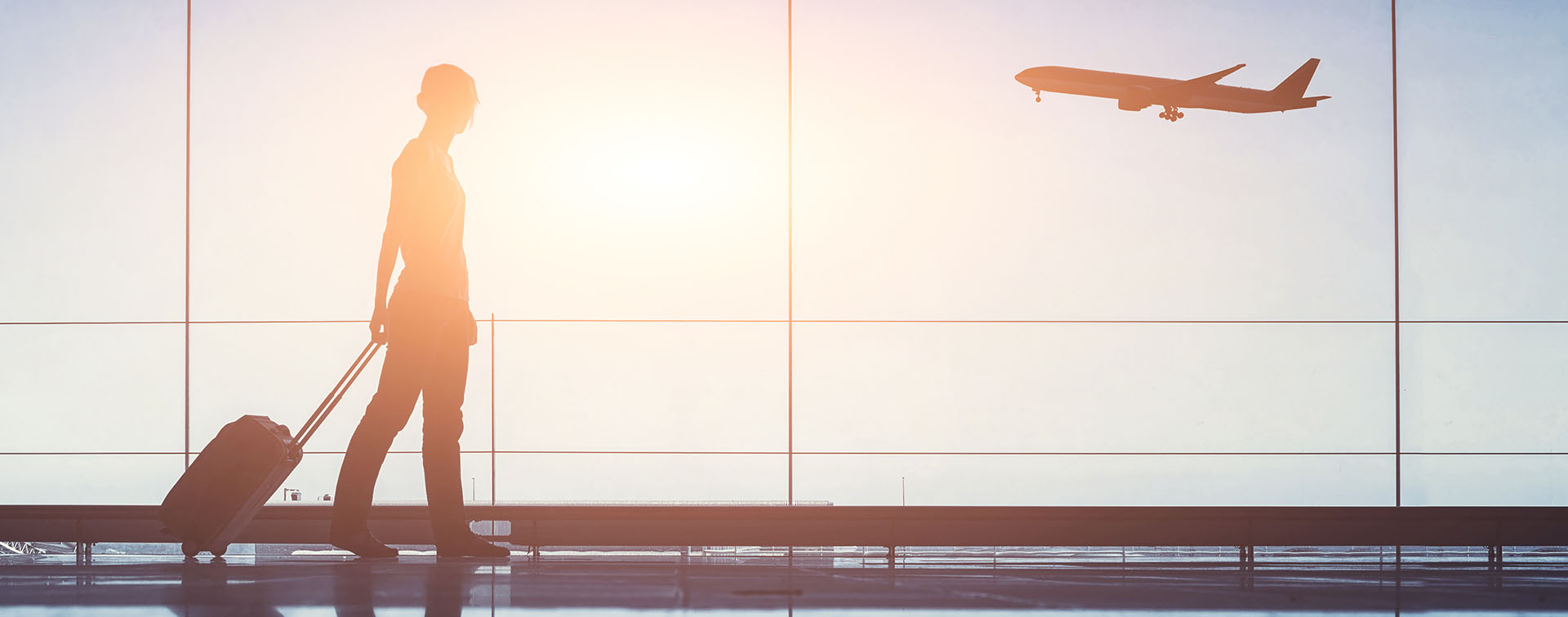
Sarah Morgan is a respected luxury travel writer who also has over four decades of experience in advising clients in luxury travel on their brand strategy and communications.
In a landscape marked by global uncertainty, it is reassuring that the appetite for travel is arguably stronger than ever, with growth continuing across most sectors. Societal issues and the use of technology continue to be key drivers in the industry. The backlash against overtourism and the growing preference for sustainable and ethical companies are two powerful influences on travel choices. Luxury travel also continues to thrive, although it now exists within a broader framework of changing consumer priorities, planetary pressures, and geopolitical complexities.
Looking ahead, the International Air Transport Association forecasts that the number of air travelers will exceed five billion for the first time in 2025. However, this projection overlooks the growing popularity of train travel and staycations, which continue to capture a significant share of the travel market. Additionally, luxury leisure hospitality, a rapidly expanding global segment, is expected to increase by over 42% in the next four years. This growth spans key categories such as aspiring luxury, high-net-worth, very-high-net-worth, and ultra-high-net-worth travelers and is expected to generate USD 391 million in 2028, according to McKinsey & Company. This expansion is accompanied by mounting pressure around sustainability, inclusivity, and managing rising tourism without compromising ecosystems or local cultures.

An offshoot of overtourism is the growing desire to discover off-the-beaten-track destinations particularly during off-peak times. Discerning travelers are increasingly seeking out locations that deliver high standards while being far removed from the crowds. For these visitors, travel is as much about discovering an authentic ‘sense of place’ as it is about finding a peaceful escape from other tourists.
Clearly some high-profile destinations have fallen victim to overtourism, resulting in environmental strain, local resistance to unsustainable visitor numbers, and soaring residential property prices. In parts of Europe, particularly in Portugal and Spain, tensions have resulted in protests, prompting travelers to explore alternative destinations.
In response, several countries have crafted thoughtful tourism-demand strategies that tap into the trend of exploring uncharted destinations. Costa Rica, Croatia, Peru, the Philippines, Rwanda, Slovenia, and Vietnam are all expected to reap the benefits of this in the coming years.
An exciting new trend in luxury and ultra-luxury travel brands is their expansion into residential properties. With privacy and hyper-personalization being priorities for high-net-worth travelers, exclusive-use residences are a sweet spot that provide a luxurious ‘home from home’ experience with full hotel-style amenities and concierge services.
In the last decade, the number of branded offerings across the world has grown by 198%. In addition to well-known hotel brands such as Ritz Carlton, St. Regis, and Waldorf Astoria growing their global residences, non-hotel luxury brands such as Aston Martin, Baccarat, and Fendi are also making a mark with expansive portfolios in exclusive destinations.
Today, there are around 700 branded residences globally, with an equal number scheduled for completion by 2030, reflecting a sustained trend for blending the traditional luxury hotel model with long-term residential living. As this sector rapidly expands, market saturation is inevitable. To succeed and thrive in this competitive landscape, developers must aspire to new levels of luxury in design, service, and sustainability.
The hunger for well-being knowledge and life-enhancing programs and experiences has surged post-pandemic. According to the Global Wellness Institute, wellness tourism is projected to reach USD 1.4 trillion by 2027.
Wellness travelers comprise a broad range of individuals seeking bespoke health and longevity programs across the globe, from juicing and detoxing retreats to life coaching and personalized roadmaps, as well as full-body analysis and brain boosting treatments.
For luxury wellness travelers, destinations such as Germany, Spain, Switzerland, and Thailand are leading the way, offering everything from ‘monk-level’ meditation retreats to the very latest genetic testing.
New terms such as ‘transformational’ or ‘soft travel’ are emerging to describe this trend, all with the same focus, namely, helping travelers achieve a greater sense of physical and mental well-being. However, wellness travel does split into two distinct camps: one that embraces a science-based or technological approach, and the other that adheres to a more traditional spiritual ethos. From cold-water immersion, sound baths, and forest bathing to the latest innovations in scientific tests and biometric scans, travelers simply need to choose their ‘silver bullet’.
An interesting shift in travel motivation is the move away from fulfilling traditional bucket lists towards exploring experiences that enhance mood and emotional well-being. Key drivers now include curiosity, exploration, and the desire to feel anticipation, excitement, joy, and a connection with nature.
Wilderness tourism in non-commercialized destinations, and astro tourism, which involves traveling to observe the night sky and connect with the cosmos, are becoming an important focus for many destinations aiming to attract travelers in search of mood elevation. Other mentally uplifting experiences include attending global festivals, concerts, and major sporting events. Travelers who are more active are discovering the joys of ‘racketeering’ — the booming trend of padel tennis or pickleball players who globe-trot to meet and play with like-minded enthusiasts.
Another notable growth area is purposeful travel, which focuses on life-changing experiences. This can include pilgrimages such as walking Europe’s Camino de Santiago, hiking Peru’s Inca Trail, or opting for voluntourism or conservation travel where participants contribute to reinvesting in communities, cultures, and landscapes.
An undesirable consequence of purpose-based travel is the increased disruption to local communities. Well-intentioned efforts can inadvertently create negative outcomes such as over-reliance on external support, disruption to local systems, and even exploitation. For example, some establishments, such as orphanages, are set up primarily to attract donations and volunteers rather than to meet genuine needs. As demand for purposeful travel continues to grow, the need to balance these experiences with mindful consideration for the well-being of communities and the environment is more crucial than ever.
Sustainable and responsible travel has thankfully become part of our collective consciousness and continues to be a driving force globally. Within the luxury and ultra-luxury travel segment, travelers’ purpose-led values are propelling change, aiming to balance the desire for aesthetic excellence without sacrificing ethical practices.
While no international framework is yet operational, most destinations, hotels, resorts, and transport providers are championing the drive to reduce their carbon footprints and offset traveler impact wherever possible. Two notable examples of innovation in this space are The Soneva Group and The Slow Hotel Group.
Greenwashing remains a challenge, but as savvy Gen X, Y, and Z travelers demand higher standards of responsible tourism, the industry is increasingly being held accountable to meet a benchmark that satisfies their need for transparency.
This conscientious consumption is now being celebrated and a more ‘sensitive luxury’ is emerging. Many high-end travel brands are redefining what luxury means to a new generation of conscious travelers. The result is pared back or lean luxury — concepts that resonate better with the values of today’s luxury travel era.
As the world’s climate heats alarmingly, we are witnessing the need to redefine seasonality and tailor travel to absorb these changes.
The rise in soaring temperatures in certain parts of the world has given birth to the concept of ‘coolcations’, where travelers head to cooler locations to seek refuge from the intense heat.
One beneficiary of this trend is the Alps, which has seen a significant boost in the number of summer travelers. Alps in Luxury, a leading provider of summer chalets, has seen a 25% increase in bookings year on year in recent times, while the French Alps recorded 23 million overnight stays in 2023. Families are also being drawn to European and Scandinavian countries where they can enjoy various activities in cooler, less crowded destinations.
The challenges of hotter weather have also impacted the industry significantly. In just two examples from 2023, Greece evacuated 19,000 holidaymakers due to wildfires on the island of Rhodes, and flights in the US were grounded when temperatures soared to 46° C. Extreme seasonal weather looks set to continue, so operators will need to prepare for ever-shifting changes in demand and seasonality.
Another new trend is the growing popularity in ‘shoulder season’ travel — vacationing in the off-peak months — in order to avoid the crowds and take advantage of the extended periods of warmer weather.
Solo female travel is another growing phenomenon driven by greater financial independence, better connectivity, and an increase in safe spaces for women. More female travelers are roaming alone or traveling with friends or other like-minded women.
According to the Solo Female Travelers Club, Google searches for the term ‘solo female travel’ had grown 6 fold during the 4 years proceeding Covid 19 with early 2024 stats surpassing the pre pandemic 2020 peak. In fact, current Google stats for global searches for ‘solo women travel packages’ are up 600% year on year.
To cater to this growing audience, operators must focus on creating experiences that empower women while meeting their needs for privacy, safety, and all-female staff.
As destinations worldwide address the impact of overtourism, border policies are evolving to balance security with the need to attract valuable international tourism. While designed to streamline entry processes and enhance safety measures, the introduction of new systems such as electronic travel authorizations (ETAs) have added layers of security and administrative requirements for travelers from visa-free countries and can create bottlenecks at borders. The transition to electronic entries will continue to impact ease of travel until automated processes are established. For luxury travel, this could mean increased involvement from operators in visa and entry processes.
The UK’s ETA extension, which came into force on 8 January, and Europe's ETIAS, scheduled to launch in the second quarter of 2025, are just two examples of evolving border entry systems. While these initiatives may be criticized for imposing new requirements on travelers from visa-free countries, they have been designed to streamline entry processes and enhance security. Predictions are that borders will continue to adapt, while governments attempt to balance heightened security measures with the need to attract international visitors.
The coming year promises to be an exciting period of expansion and exploration as we witness the emergence of new patterns of travel behaviors and destination choices. As the demand for bespoke standards of service, offerings, and experiences continue to rise, the tourism industry will have to focus on meeting the expectations of the discerning traveler.
References
McKinsey & Company, ‘The State of Tourism and Hospitality 2024’
Virtuoso, ‘Luxury Travel Trend Watch 2025’